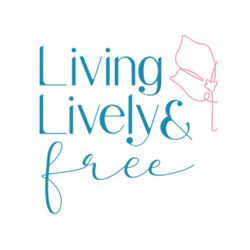If you’ve ever thought, “I wish I could still drink, but I can’t”—whether because of health reasons, personal boundaries, or simply recognizing that alcohol has stopped working for you—you’re not alone. And you might be dealing with something called gray area drinking.
And that bittersweet truth is more common than you think.
There’s a (albeit small) part of me that misses it sometimes. I don’t miss the hangovers or the foggy mornings, but sometimes I miss the the idea of it or those first sips where I felt giddy and light. The ritual of pouring a glass of wine after a long day. The celebratory champagne toasts. The feeling of loosening up at dinner parties where everyone else seems so effortlessly relaxed with a cocktail in hand.
Yet as quickly as I think of the “sweet” side, the bitter side memories (and tastes and feels) are so much stronger and instead of brief giggly-ness, I have a life now of deeper bliss and joy. This can be you too. Seriously, a gray area drinking coach can really, really help you stack on the sober track.
I see the patterns clearly now: the disrupted sleep, the inflammation, the way even moderate drinking affects my energy and mental clarity. But that doesn’t mean I don’t occasionally feel nostalgic for those moments when drinking felt like connection, celebration, or simply unwinding.
Gray Area Drinking Causes Inflammation (and Stress!)
Gray area drinking sits in that undefined space between “rock bottom” and totally carefree social drinking. You don’t fit the stereotypical image of someone with a drinking problem. You’re functional, successful, and responsible. You may or may not drink daily, and when you do, you’re not necessarily getting drunk.
But alcohol has become a bigger part of your life than you intended.
Maybe you find yourself thinking about wine o’clock before the workday is even done, or feel like you “need” a drink to relax after stressful days. Perhaps you worry about how much you drank the night before, or you set rules for yourself—only on weekends, only two glasses—that you regularly break. You might experience anxiety, disrupted sleep, or brain fog that you suspect is alcohol-related, or feel embarrassed about your drinking but don’t think it’s “bad enough” to address.
For many women navigating midlife transitions—kids leaving home, career pivots, aging parents, perimenopause, or menopause—alcohol can quietly become a coping mechanism. What started as an innocent way to unwind evolves into a habit that no longer aligns with who you want to be.

Alcohol Freedom for Empty Nesters (The Time Doesn’t Need to Be Filled with Drinking)
This stage of life brings unique challenges. After years of putting everyone else first, you finally have space to focus on yourself. But with that space comes a strange emptiness, questions about identity, and sometimes, uncomfortable feelings you’ve been too busy to process.
Alcohol promises to soften those edges. It offers instant relief from the silence in a house that used to be filled with chaos, the stress of climbing the career ladder or reinventing yourself professionally, the hormonal rollercoaster of perimenopause and menopause, the grief and joy of watching your children build independent lives, and the weight of aging parents and shifting family dynamics.
But here’s what I’ve learned: alcohol doesn’t actually help with any of these things. It just delays dealing with them—and often makes them worse.
The Drinking Nostalgia Is Real And It’s Okay
I won’t pretend that choosing alcohol freedom means you’ll never miss certain moments. I sometimes think about girls’ weekends at wineries, laughing until my sides hurt, or the tradition of opening a special bottle to celebrate milestones. There’s the memory of bonding with colleagues over after-work drinks, and the romantic notion of a glass of red wine with a good book.
But what I’ve realized is that I’m not actually nostalgic for the alcohol—I’m nostalgic for the connection, celebration, relaxation, and joy that I associated with those moments. And here’s the truth: those feelings were never about the wine. They were about the people, the accomplishments, the freedom to unwind, and the permission to enjoy life.
The good news? You can have all of those things without alcohol. In fact, you can have them more authentically, more memorably, and with zero regret.
Why Trying to Go Alcohol Free On Your Own Is So Hard
When I first started questioning my relationship with alcohol, I thought I could just… stop. Or moderate better. Or use more willpower. I read books, listened to podcasts, and made promises to myself on Sunday nights that I’d broken by Wednesday evening.
The problem wasn’t lack of willpower or commitment. The problem was that I was trying to dismantle decades of conditioning, habits, and coping mechanisms all by myself—while also navigating one of the most challenging transitions of my life.
Gray area drinking is particularly tricky because it’s invisible to others—no one is staging an intervention, so it’s easy to keep minimizing it. Society normalizes it everywhere you look, with drinking portrayed as essential to relaxation and fun. You feel stuck in limbo, not “bad enough” for traditional recovery programs but definitely struggling. And the stakes feel lower, until you realize how much energy you’re spending managing something that’s supposed to be relaxing.
I kept thinking I should be able to figure this out on my own. After all, I’d successfully raised kids, built a career, and managed countless other challenges. Why was this so hard?
What I eventually learned is that changing your relationship with alcohol—especially when you’re dealing with gray area drinking—isn’t about being strong enough. It’s about having the right tools, understanding what’s actually happening in your brain and body, and getting support tailored to where you are right now.
Hiring a Sobriety Coach: The Difference Support Makes
I used to think asking for help with drinking meant admitting something was seriously wrong with me. But that’s not what support looks like for gray area drinking. It’s not about labeling yourself or following a rigid program designed for crisis intervention.
It’s about having someone in your corner who gets the nuances of your situation without judgment, helps you understand why you reach for a drink when you’ve promised yourself you wouldn’t, offers practical strategies for the real-world situations you face—not generic advice, holds space for all the complicated feelings that come up when you change a long-held habit, and celebrates your wins and helps you learn from setbacks without shame.
When you work with someone who specializes in gray area drinking and understands the specific challenges of this life stage—the hormonal changes, the identity shifts, the social dynamics—everything changes. Suddenly you’re not white-knuckling your way through or relying solely on willpower. You’re addressing the root causes and building sustainable habits that actually fit your life.

What Working With an Alcohol Freedom Coach Looks Like
If you’re imagining something clinical or confrontational, let me reassure you: coaching for gray area drinking is collaborative, personalized, and focused on your goals—not on fitting you into a predetermined box.
Here’s what makes this kind of support so effective:
Understanding Your Unique “Why”
Gray area drinking is rarely about the alcohol itself—it’s about what you’re trying to feel (or not feel). Working with a coach trained in psychology, trauma-informed approaches, and nervous system regulation helps you understand the underlying patterns driving your drinking. Maybe it’s stress, maybe it’s hormonal, maybe it’s unprocessed emotions from this life transition. Once you know your “why,” you can address it directly instead of medicating it with wine.
Personalized Strategies That Fit Your Real Life
Cookie-cutter advice doesn’t work for gray area drinking. Your coach develops strategies specifically for your challenges: navigating work events, managing stress without wine, dealing with a partner who still drinks, creating new evening rituals, handling social pressure, or managing perimenopause symptoms that used to send you straight to the wine fridge.
Science-Based Methods (Not Willpower)
Coaches certified in programs like This Naked Mind, Gray Area Drinking coaching, and Affective Liminal Psychology use evidence-based methods to help rewire your brain’s relationship with alcohol. You’ll learn why your brain craves alcohol and how to change those patterns—which is far more effective than just trying harder.
Consistent, Compassionate Accountability
When you’re in the gray area, it’s easy to keep putting off change because “it’s not that bad.” Having regular check-ins with someone who believes in you and holds you accountable (without judgment) makes it so much easier to stay committed to your goals—even when life gets stressful or you’re tempted to slide back into old patterns.
Navigating the Social Landscape
One of the biggest challenges isn’t the drinking itself—it’s managing social situations, explaining your choices to curious friends, dealing with a partner who doesn’t understand, or showing up at networking events without your liquid confidence. Your coach helps you develop the communication skills and confidence you need for these real-world scenarios.
Addressing the Whole Picture
The best alcohol freedom work doesn’t just focus on not drinking—it addresses everything that led you to drink in the first place. That might include stress management during life transitions, processing emotions around empty nesting, managing hormonal symptoms, rebuilding your identity, creating new ways to relax, or healing old patterns you’ve been avoiding.
What Alcohol Freedom Actually Looks Like
Choosing to address gray area drinking doesn’t mean you’re broken or that you’ve failed. It means you’re ready to live more intentionally.
Life without alcohol (or with dramatically reduced drinking) offers clarity and energy you forgot you could have, better sleep and physical health, authentic connections without the social lubricant, confidence in your choices rather than morning-after regret, space to process emotions and life transitions in healthy ways, and freedom from the mental energy spent managing your drinking.
The nostalgia for drinking might never completely disappear, and that’s okay. You can honor those memories while also recognizing that this version of yourself—clear-eyed, intentional, and free—deserves to be celebrated too.
Your Next Step: Book a No Pressure Discovery Call
If you’re tired of the push-pull relationship with alcohol, if you know deep down that drinking isn’t serving you anymore, or if you’re simply curious about what life could look like with more clarity and less compromise, you don’t have to figure this out alone.
Gray area drinking thrives in isolation and ambiguity. But with the right support, you can move from that blurry in-between space to a life that’s truly brilliant.
The women I’ve seen make lasting changes aren’t necessarily the ones who hit rock bottom—they’re the ones who decided they deserved better and were brave enough to ask for support before things got worse.
You’ve already taken the first step by reading this. The question is: what do you want to do next?

